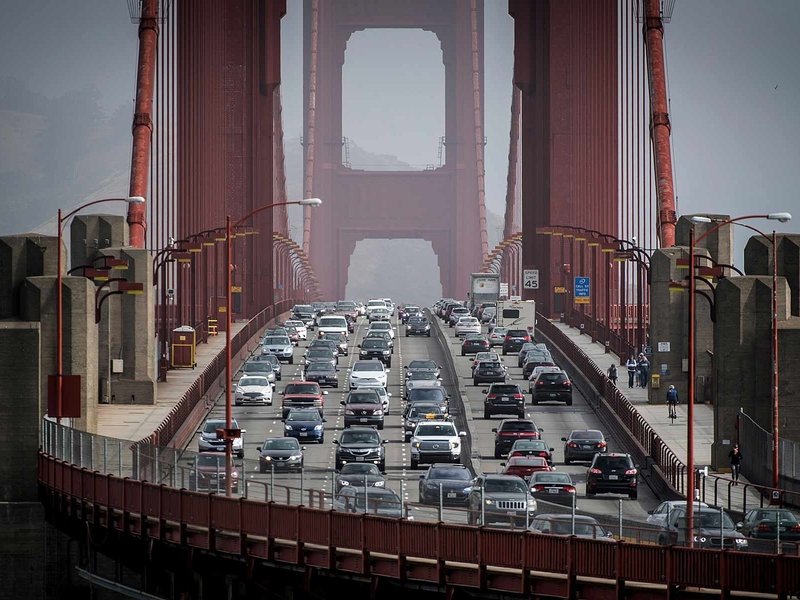
The Biden administration on Monday took a key step toward restoring California’s power to limit greenhouse gas emissions from automobiles and overturn a Trump-era policy that pitted the federal government against a state seeking to eventually ban conventional gasoline-powered cars.
The Environmental Protection Agency released a formal notice asking for public comment as it considers restoring a waiver that enables California to mandate zero-emission vehicles and enforce its own stringent limits on greenhouse gas emissions from vehicle tailpipes. The Trump administration yanked that waiver in 2019.
Under the Clean Air Act, California has special treatment to set air pollution policies that are tougher than the federal government’s — and other states may elect to adopt them. So far, 14 other states have, representing more than a third of the U.S. vehicle market.
“The 2019 decision to revoke the state’s waiver to enforce its greenhouse gas pollution standards for cars and trucks was legally dubious and an attack on the public’s health and well-being,” EPA Administrator Michael Regan said in a news release.
The action comes as the Biden administration moves on multiple fronts to boost requirements for fuel-efficiency and tailpipe pollution that were weakened under former President Donald Trump. The Transportation Department on Thursday proposed rescinding a 2019 rule preempting California from issuing its own limits on greenhouse gas emissions, a companion measure to the waiver withdrawal the EPA is targeting. And the administration is set to propose new vehicle requirements in July.
President Joe Biden has promised aggressive action to combat climate change, and stifling planet-warming pollution from automobiles is central to the effort. The transportation sector is now the largest single source of greenhouse gas emissions in the U.S.
“Today, we are delivering on President Biden’s clear direction to tackle the climate crisis by taking a major step forward to restore state leadership and advance EPA’s greenhouse gas pollution reduction goals,” Regan said.
In its notice Monday, the EPA asserts the 2019 waiver withdrawal was legally flawed and says there were “significant issues” with the move. Among them: the six years that elapsed between the agency’s initial 2013 decision to grant the waiver and the Trump administration’s 2019 decision to withdraw it.
A restored waiver could allow California to resume enforcing auto standards it brokered with carmakers and the federal government in 2012 — even if the Biden administration later charts a different course. That program required automakers to boost the average fuel economy of their fleets by about 5 percent annually, with the fleet-wide requirement targeting almost 50 miles (80.47 kilometers) per gallon in 2025.
As the Biden administration rewrites the federal requirements, some automakers are encouraging a less-aggressive alternative that would require 3.7 percent annual gains in fuel economy, toward a 50 mpg average a year later, in 2026.
California would still need to obtain waivers for future auto emissions requirements, including a package of next-generation standards being developed by the state’s Air Resources Board. Gov. Gavin Newsom has told the agency to phase out the internal combustion engine and ban the sale of all new gasoline-fueled cars after 2035.
Environmentalists cheered the EPA’s move.
“The administration’s action today to preserve states’ rights will ensure we can continue to protect our communities from unnecessary air pollution and fuel costs,” said Julie Cerqueira, executive director of the U.S. Climate Alliance that works with states to cut greenhouse gas emissions. It also “will address the largest source of carbon pollution in the United States.”